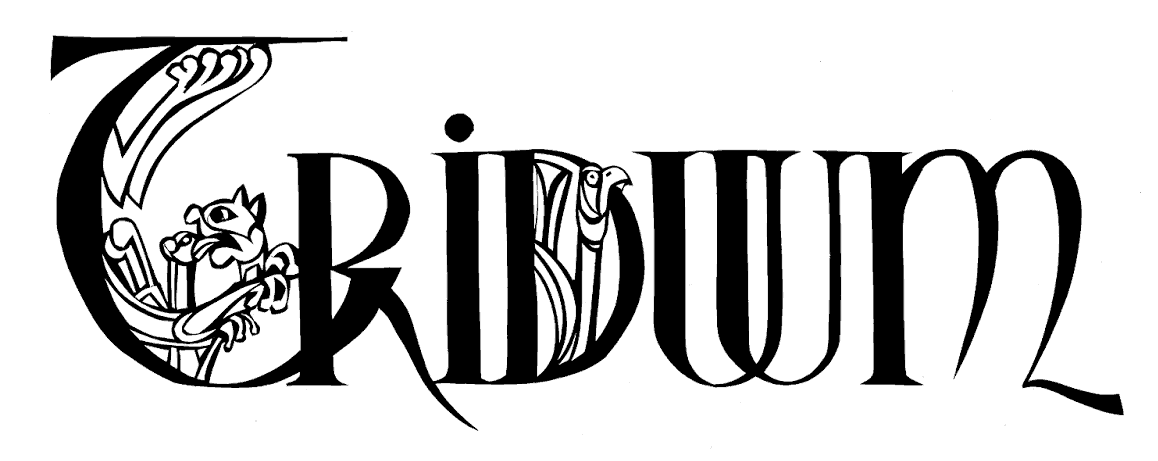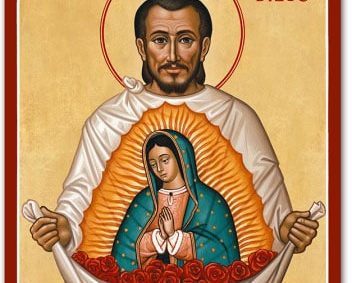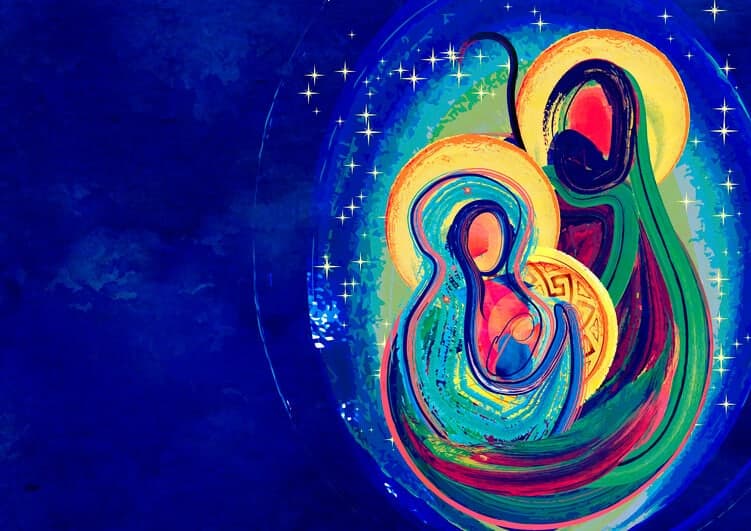Triduum: the Three Days. These are our most holy of days. They make up our most important single celebration of the year: Easter. But exactly what three days make up the Triduum?
The three days of the Triduum are counted using the Jewish way of keeping time: from sunset to sunset. So the first day of the Triduum is from sunset on Holy Thursday until sunset on Good Friday. The second day is from sunset on Good Friday until sunset on Holy Saturday. The third day is from sunset Holy Saturday (the great Easter Vigil) to sunset Easter Sunday (Paschal Vespers). We tend to think of the Three Days as commemorating separate, distinct events: on Holy Thursday we remember the Last Supper, on Good Friday we recall the passion and on Holy Saturday the resurrection. But in our liturgy, the church thinks about the Last Supper not as the last thing that happened on Holy Thursday, but as the thing to happen on Good Friday. These Three Days are a single moment. We walk (or crawl) into this moment on Thursday night and walk (or dance) out on Easter day. In between, there’s a flood of stories and songs, rites and rest, fasting and feasting. The Three Days are time out of time, the center of our year and of our life.
(Paraphrased from The Three Days, Gabe Huck)
Holy Thursday
Mass of the Lord’s Supper
 Holy Thursday brings the end to Lent, and begins the celebration of the great Triduum. On the three days of the Triduum, we gather several times and together, hear some of the church’s most beautiful prayers and scriptures. On Thursday, after listening to the scriptures, we wash each other’s feet. We go down on our knees with pitchers of water, basins and towels. Jesus gave us this image of what the church is supposed to look like, feel like, act like. This is rehearsal for Christian life, as is the next thing we do, a collection for the poor.
Holy Thursday brings the end to Lent, and begins the celebration of the great Triduum. On the three days of the Triduum, we gather several times and together, hear some of the church’s most beautiful prayers and scriptures. On Thursday, after listening to the scriptures, we wash each other’s feet. We go down on our knees with pitchers of water, basins and towels. Jesus gave us this image of what the church is supposed to look like, feel like, act like. This is rehearsal for Christian life, as is the next thing we do, a collection for the poor.
Next we celebrate the Eucharist. This evening’s liturgy has no ending: whether we stay to pray awhile or leave, we are now in the quiet and peace and glory of the Triduum.
Questions for Reflection:
Jesus says: “…you must wash each other’s feet.” “…as I have done, so you must do …”
Whose feet do I wash? Who do I serve? Whose feet do I avoid? Who do I ignore? Who washes my feet? Who do I allow to be close to me?
Good Friday
The Celebration of the Lord’s Passion
 Our celebration of the Triduum continues on Good Friday of our Lord’s Passion. The liturgy begins with silence, then spoken prayer, followed by the liturgy of the word. The structure of the liturgy of the word is simple: scripture, silence, psalmody, scripture, silence, gospel acclamation, the proclamation of the passion, homily, intercessions. The intercessions are in an elaborate form. The cross is then carried solemnly into the assembly and is venerated by all. The rite concludes with the simplest of communion services and the liturgy ends as it began—in silence.
Our celebration of the Triduum continues on Good Friday of our Lord’s Passion. The liturgy begins with silence, then spoken prayer, followed by the liturgy of the word. The structure of the liturgy of the word is simple: scripture, silence, psalmody, scripture, silence, gospel acclamation, the proclamation of the passion, homily, intercessions. The intercessions are in an elaborate form. The cross is then carried solemnly into the assembly and is venerated by all. The rite concludes with the simplest of communion services and the liturgy ends as it began—in silence.
Jesus is identified as: true king!, new Passover lamb, new creation, source of new life.
Questions for Reflection:
What is the cross in my life? How am I called to embrace that cross? Is my cross one of suffering, or do I see “victory” in my cross? Where in my own life do I see “death and resurrection”? How do I see Jesus as “source of new life”?
The Easter Vigil
 Hungry now and excited, the church gathers in the darkness. The Easter Fire is blessed; the candle is lit from the new fire with the words: “May the light of Christ, rising in glory, dispel the darkness of our hearts and minds.” The deacon will accept the candle from Fr. John, and a procession will begin.
Hungry now and excited, the church gathers in the darkness. The Easter Fire is blessed; the candle is lit from the new fire with the words: “May the light of Christ, rising in glory, dispel the darkness of our hearts and minds.” The deacon will accept the candle from Fr. John, and a procession will begin.
As we enter the church, the deacon holds high the Easter candle, and three times exclaims: “Christ our Light,” and we respond: “Thanks be to God!” We all receive light from the Easter candle, and stand while the priest proclaims the Exultet.
The song is true to its name: it exults! It is a victory song, a wedding song of God and humanity, earth and heaven. It is theology in its purest form, the song the church longs to sing. From the naming and acclamation of the night’s deeds it is clear that the church understands this night to be sacramental.
We listen to some of the most powerful scriptures in the Bible and we go to the font and bless the waters. Catechumen are received into full communion with the Church. These are the moments when death and life meet, when we reject evil and give our promises to God. Together we go to the table and celebrate the Easter Eucharist. Easter Sunday begins and we are ready for Fifty Days of rejoicing.









0 Comments